Exploring Citizenship: Sharing
Sue Barraclough
Learn about the different ways in which people share....
Find out what to do if someone does not want to share, why it’s important to share friends, and how it can be useful to work as a team.
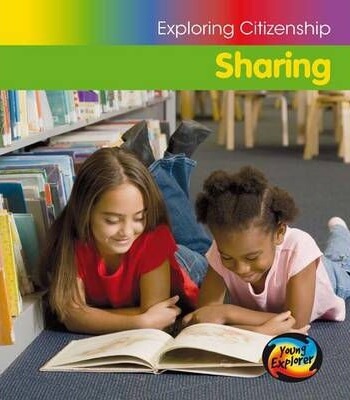
The SWAN Resource Library is located at the SWAN Office, and contains more than 350 items. Books and DVDs are available for loan free of charge to all SWAN Members, and we have numerous FREE information pamphlets available to keep. Please contact us to enquire as to the availability of items and to borrow from our library. Resources will need to be collected from, and returned to our Busselton office, located at 12 Pettit Crescent, Busselton WA 6280.
If you have a resource you would like to share with others, please contact us to make arrangements. Alternatively, make a Donation to SWAN. All donations over $2.00 are tax deductible.
The South West Autism Network relies on the generosity of our members and community to support the families of the south west region living with ASD.
Learn about the different ways in which people share....
Find out what to do if someone does not want to share, why it’s important to share friends, and how it can be useful to work as a team.

If children are to become emotionally competent adults, able to understand and have mastery over their feelings, it is essential that this important work begins in the early years.
It is a fundamental part of enabling children to be sensitive to the feelings of others, and a key element of all other emotional skills. This book takes a sensitive look at the whole range of human emotions and shows how to help children to recognise and talk about them.

For young children with high-functioning autism or Asperger's disorder.
Young children with autism have particular difficulty in understanding and controlling their emotions, especially when those emotions are negative. This practical manual for professionals provides a set of simple strategies to help children with high-functioning autism or Asperger’s Syndrome who suffer from mood difficulties to decrease negative feelings and increase positive feelings in daily life.
A note from SWAN: ‘Asperger’s Syndrome’ is no longer used as a diagnosis and the term “high-functioning” is harmful, as it minimises the varied support needs of autistic people. SWAN does not endorse these terms, but recognises that this resource contains other useful information.
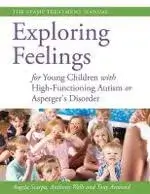
Many children, especially those with developmental delays, have trouble understanding or expressing their feelings.
The result can be difficulty with anger management. This book provides a guide for caregivers. It includes a workbook portion that asks children to identify situations that trigger their anger and find appropriate ways to respond.The program was designed as a treatment for an anxiety disorder or anger management problems in children with Asperger’s Syndrome but the program can be equally applied to children with High Functioning Autism and PDD-NOS. The program does not have to be implemented by a qualified psychologist. A teacher, speech pathologist, occupational therapist or parent could implement the program without having training in Cognitive Behaviour Therapy.
A note from SWAN: ‘Asperger’s Syndrome’ is no longer used as a diagnosis and the term “high-functioning” is harmful, as it minimises the varied support needs of autistic people. SWAN does not endorse these terms, but recognises that this resource contains other useful information.
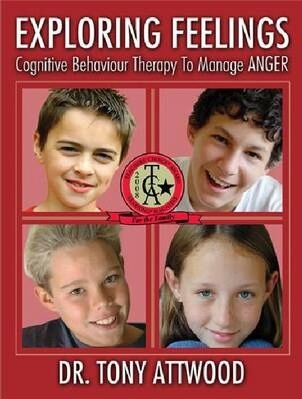
Anxiety can be confusing for a child. Learning about emotions helps children recognize connections between thinking and feeling.
This book provides a guide for caregivers. It includes a workbook section which allows children to identify situations that make them anxious and learn how to perceive the situation differently. The program was designed as a treatment for an anxiety disorder or anger management problems in children with Asperger’s Syndrome but the program can be equally applied to children with High Functioning Autism and PDD-NOS. The program does not have to be implemented by a qualified psychologist. A teacher, speech pathologist, occupational therapist or parent could implement the program without having training in Cognitive Behaviour Therapy.
A note from SWAN: ‘Asperger’s Syndrome’ is no longer used as a diagnosis and the term “high-functioning” is harmful, as it minimises the varied support needs of autistic people. SWAN does not endorse these terms, but recognises that this resource contains other useful information.
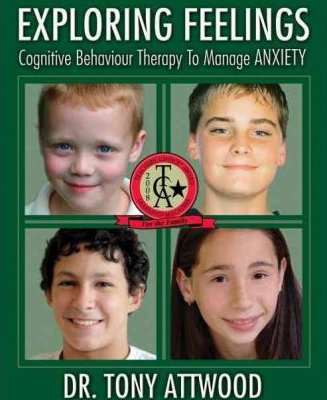
Teaching children mindfulness through the senses at a young age can help them build confidence, learn to cope with stress and realise they can overcome challenging moments in their life.
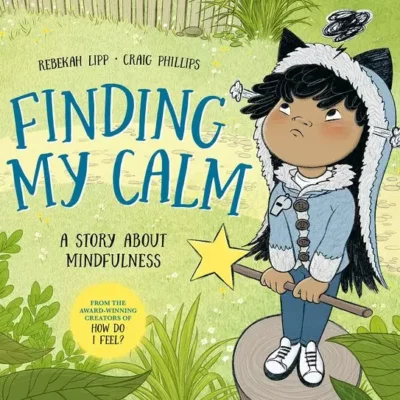
Have you ever been called a freak or a geek? Have you ever felt like one? Over the years Luke has learned to laugh about the name calling but there are other aspects of life which are more difficult.
Adolescence and the teenage years are a minefield of emotions, transitions and decisions, and when a child has AS, the result id often explosive. Luke’s book gives guidance on bullying, friendships, when and how to tell others about AS, problems at school, dating and relationships, and morality. Luke Jackson is 13yrs old and has three sisters and three brothers. One of his brothers has ADHD, one is Autistic and Luke has Asperger Syndrome.
A note from SWAN: ‘Asperger’s Syndrome’ is no longer used as a diagnosis and the term “high-functioning” is harmful, as it minimises the varied support needs of autistic people. SWAN does not endorse these terms, but recognises that this resource contains other useful information.

You may not know anyone else who suffers from repetitive "stuck" thoughts and compulsive rituals, but plenty of other teens experience symptoms of obsessive-compulsive disorder (OCD).
The need to repeatedly wash their hands, check to make sure everything’s okay, count possessions, put things in order, or even repeat thoughts over and over. Rituals like these may calm you down when you’re feeling stressed or anxious, but you know all too well that the relief is temporary and you’ll have to repeat the ritual when you start feeling uneasy again. This cycle can make you feel trapped, but also may seem impossible or even frightening to break.
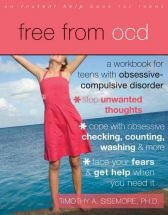
Making and keeping friends doesn't come easy for children with autism spectrum disorders.
Many children need to be taught a range of strategies directed at expanding their social understanding skills, such as reading facial expressions and body language. , an interactive workbook aimed at children ages 7-11, addresses these challenges by breaking down the complex concept of making friends into simpler ideas. Through fun, engaging activities, children gain real-life knowledge of the major “secrets” of making and keeping friends. By gaining the foundation for making and keeping friends at a crucial age, children are better prepared for successfully interacting with others for the rest of their lives.

If your child rarely shows you that he or she loves you, it can be profoundly distressing.
This is the experience of many parents of children with an autism spectrum disorder (ASD), and most fear that it reflects the truth. In fact the truth has generally more to do with the difficulty that young people with an ASD have in communicating like or love for someone physically and verbally. They may not know how to go about expressing themselves in these ways, or understand that family members and friends can find the absence of demonstrative affection upsetting. This book, by world leading experts Tony Attwood and Michelle Garnett, addresses this issue in practical terms. They provide carefully designed activities for parents to work through with their children to help them to understand and express affection. Their child will learn to identify his or her own and others’ comfort and enjoyment range for gestures, actions and words of affection and the different ways to express feelings for someone, appropriate to each relationship and situation.
A note from SWAN: ‘Asperger’s Syndrome’ is no longer used as a diagnosis and the term “high-functioning” is harmful, as it minimises the varied support needs of autistic people. SWAN does not endorse these terms, but recognises that this resource contains other useful information.

In the quest for school success—not to mention a happy home life—kids have a lot to juggle: schoolwork, friends, activities, chores, bedrooms, electronics, lockers, and desks.
Get Organized Without Losing It provides friendly, entertaining help for kids who want to manage their tasks, time, and stuff—without going overboard or being totally obsessed.
Empower kids to:
Tips, examples, lists, and steps make it doable; jokes and cartoons make it enjoyable.
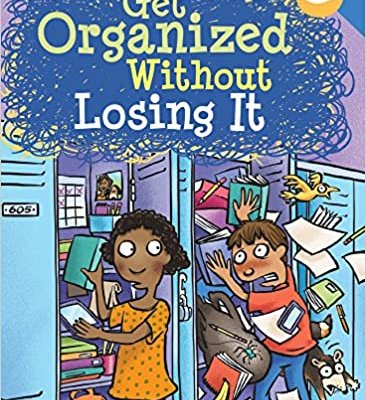
Suitable for teen readers, this title presents a comprehensive Acceptance and Commitment Therapy (ACT), positive psychology, and emotional intelligence plan for...
moving past depression, anxiety, unhealthy behaviors, and simple self-doubt. It follows the journey of the characters Jess and Sam as they learn to control their impulses.
